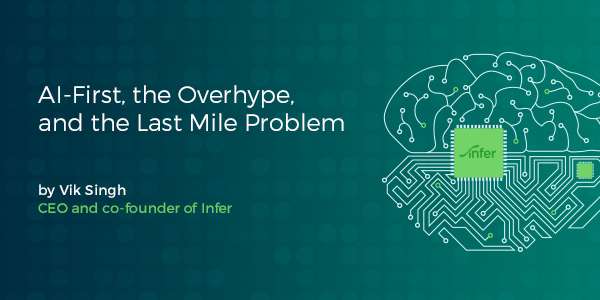Had the holidays so I took a break…. This week is the Bola special. It’s dedicated to fundraising like a boss.
For those who don’t want to read everything, here are the 4 takeaways on how to fundraise. I will most likely go super granular on each part in the future.
- Know why you need to fundraise
- Know who you’re fundraising from
- Have your fundraising game plan and have your end game in mind
- ABC. Always Be Closing
Know why you need to fundraise
Most founders will say they need to fundraise because they need money. While for many, that’s always the case, sometimes cutting cost, going after a more attainable growth trajectory, or eating what you kill (customer driven growth) is a better option. The metric most used to identify what needs to be spent is milestones. From there, understand how much each milestone will cost the company (people, time, $$$). Understanding milestones and use of funds along with market comparables will ensure you’re in a better decision to identify whether you need to fundraise or not and will also make your justification to family and friends, angels, and vcs sound more persuasive.
Know who you’re fundraising from
When I engage venture capital firms or angels, I try to know as much as I can about them…. How long have they been in existence? Who have they invested in? What is their thesis? Who are the key decision makers? What is it like to have them as an investor? Founders need to approach investment as if your hiring. You want to do as much due diligence on the investors you’re interested in as they will on you.
It’s also important to start the investment conversation before you need money. You’ll get a chance to “date” the investor a little bit and see if there is a fit. Also, they’ll get to date you and see if there’s interest. I normally advise reaching out and developing/creating these relationships 6-8 months before you need to fundraise.
I know the most common question after the last two paragraphs is “Where do I get all this information from?” Well, I’m glad you asked. The first place to start is to look at your networks. Who do you know and who do your friends know? I often start with all my friends in business school, law school or people I met at investment conferences. From there, I can get warm intros. If I don’t know anyone or need to know more information about their firm, I usually start with their website. Hopefully, you’ll see their investment thesis, portfolio companies and partners. From there, you can use LinkedIn, CrunchBase, Mattermark (sign up for a free trial and get information on all the investors you need…don’t tell them I told you that though.) or other platforms like VC4Africa, Angel List, Pitchbook (very expensive, find someone in the private equity industry who has access)
There are three strategies I’ve seen from founders raising capital for their company,
- Make as much noise as possible through marketing and PR that potential investors will come talk to you (seldom effective but works.)
- Research and develop a target list based on investment profile (geography, size, stage, industry) and reach out via warm intros.
- Get an email list of potential investors and send (cold emails).
I’m sure most people have use a combination of all three.
Have a realistic perspective on how long and how much effort it takes to fundraise
Once you’ve made the decision to fundraise, you’ve got to develop a fundraising plan. You should understand and document the following:
- How much you’re fundraising, valuation, terms, and how you intend to use the funds.
- The type of investors you’re going after and clip you’re accepting
- A real timeline: when you’re starting, when you intend to close, and when you really intend to close
- How you’re going to reach out to investors… Communication strategy, relationship building and how you’re going to gain access to them
In putting your plan together, be realistic about how long the process will take. There’s one company I’m working with now and it’s taken 9 months to finally get the company into fundraising mode. Sometimes crafting the narrative is more than just words, it means acquiring the right customers, bringing on the right team members, or evaluating a new business model.
ABC. Always be Closing
In fundraising mode, those who are focused on it (should not be the whole organization, will take away from operations) should be focused on driving activities which will get interested parties down the funnel. I believe fundraising is essentially like sales for your company but to a different customer and product. Every activity should be tracked to bringing people more information to get an investment decision. This doesn’t give you the license to be entitled and pushy, but it does allow you the opportunity to be realistic and upfront to investors where you are in the process (to a certain extent…will follow up on a negotiations post)
Don’t half step
To conclude, fundraising is a skill and expertise that is essential to any company. You must learn how to go through it and how to be successful. To do that, you’ve got to be fully committed. An alternative way to think about fundraising is encapsulated in a saying I heard in my previous experience at Fortify VC, “The best investor is the customer.” You’d be really surprised but sometimes, customers are willing to bend over or pay for the idea of a problem being fixed. I know business models can vary but getting customers to pay ahead to create value is something which has been around for a long time. That’s a conversation for another day.
Toolkit
Here’s an example of an excel sheet I use to track engagement. Some of you may be fancy and have a crm to do this for you.
https://docs.google.com/spreadsheets/d/1ghPJOUGlD95oEQV_tq8QYYgiSouCQilnXEwB8UvmLaY/edit?usp=sharing
I use mixmax to track my emails and create templates for broad distribution.
I just got hip to a new investor crm/manager that looks cool. I smell a clone opportunity for African markets (writes down in idea notebook) https://foundersuite.com/




